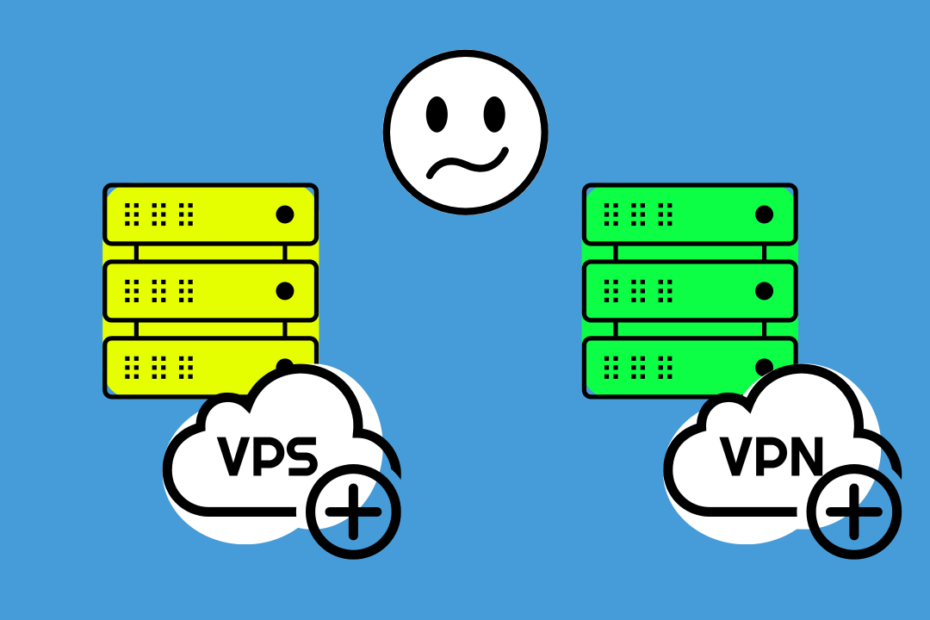Caught at the crossroads between a Virtual Private Server (VPS) and a Virtual Private Network (VPN)? Fear not! This post will dispel your confusion, helping you make an informed decision tailored to your specific needs.
VPS and VPN, both powerhouse technologies, serve different purposes. Let’s embark on a journey to uncover their unique functionalities, and how they can effectively meet your needs.
Deconstructing a Virtual Private Server (VPS)
A VPS is essentially a web hosting service providing a private corner in the vast digital universe for your website. Like renting your own apartment in a huge complex, VPS hosting offers the privacy, control, and customization of a dedicated server, but at a more affordable price point.
With VPS hosting, the keys to your virtual estate are yours alone. You’re free to install your choice of operating systems, control panels, and applications. This flexibility empowers you to tailor your environment to your unique needs and scale your services as required.
Unlocking the Features of a Virtual Private Network (VPN)
Now, imagine a secure bridge over the risky internet waters, connecting you to digital resources while maintaining your privacy. That’s the essence of a VPN. It secures your connection, encrypts all data in transit, and makes your online activities safe from prying eyes.
VPNs have become a staple tool for businesses and individuals looking to protect sensitive data and mask their digital footprints. They also serve as gate pass for users to access geographically restricted content.
The Inner Workings of a VPS
A VPS creates a private slice of a larger server exclusively for you. This setup ensures that your data and applications stay secure, without any other users on the server breaching your space.
With a VPS, you get to captain your ship – you have the autonomy to install your preferred software and applications. This independence offers a higher level of control and privacy than the traditional shared hosting plan.
How Does a VPN Function?
A VPN serves as a digital shield, protecting your data from potential interceptors. It encrypts your data before it sets off on its journey and decrypts it upon arrival. This process ensures your online transactions, browsing history, and personal data remain confidential.
The added advantage of a VPN is its ability to circumvent geographical restrictions. Whether it’s streaming your favorite show or accessing specific content, a VPN makes the internet world your oyster.
The Merits of a VPS
Opting for a VPS is like having a dedicated lane on the digital highway. It caters to businesses looking for scalable operations without breaking the bank.
A VPS enhances your website performance, especially when you’re expecting a high influx of visitors. The cherry on top is the absolute control over your server and its resources, letting you mold your hosting environment as you see fit.
Why Use a VPN?
When it comes to securing your data and ensuring privacy, a VPN comes to the rescue. It serves as your online bodyguard, protecting you from potential data breaches and malicious digital threats.
A VPN also takes the role of your global passport, bypassing geographical boundaries to access content restricted in certain regions. This feature makes streaming services like Netflix or Hulu accessible, no matter where you are.
VPS or VPN: Making the Choice
The decision between a VPS and a VPN is not a matter of superiority but rather suitability.
If you’re a website owner seeking a high-performance hosting service that can handle substantial traffic and data, VPS hosting is your go-to. It offers more dedicated resources and greater control over your server environment.
However, if online security and privacy are your priorities, a VPN should be your choice. Whether you’re remotely accessing your company’s network or shielding your internet activities from potential cyber threats, a VPN provides the security envelope you need.
For businesses seeking to run websites or host applications, a VPS offers more computational power at a reasonable cost. It’s like having a dedicated server without owning the physical infrastructure.
Concluding: VPS and VPN
There’s no definitive answer in the VPS vs. VPN debate. Each serves a unique purpose, offering distinctive benefits. VPS provides you with control, scalability, and reliability, while a VPN offers enhanced security, privacy, and unrestricted internet access.
Deciding between the two ultimately depends on your specific requirements and objectives. So, reflect on your needs, understand what each technology brings to the table, and make an informed choice. Remember, the best tool is the one that fits your needs the most!




